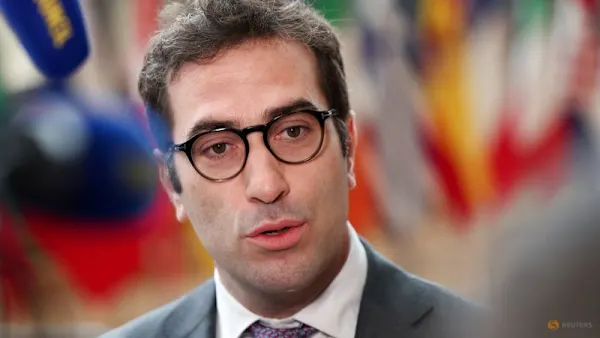
COPENHAGEN : European Union finance ministers will seek to reach a common position on Friday on how to set up a digital euro currency that could become an alternative to the now dominant U.S.-based Visa and Mastercard systems.
Discussions on creating a digital equivalent of the euro currency, now used in 20 European countries, have been going on for six years, but the debate heated up this year because the EU is now keen to reduce its dependence on other countries in key areas like energy, finance and defence.
“We need to go ahead with our own digital payment system to reduce dependency on other providers,” Spanish Finance Minister Carlos Cuerpo told reporters on entering the ministers’ talks in Copenhagen.
“I think that’s a key area of progress where we need to advance and make progress quickly. And this is part of the urgency that we’ve seen in ministries, in the political environment, and this is driving also the agenda,” he said.
DELAYS TO LEGISLATION
While there appears to be widespread support for the digital euro on the political level, the European Parliament has not passed the necessary legislation, arguing that some of the details need more work.
Still, the ECB hopes that all legislation could be in place in the first half of next year for the project to go ahead.
EU Economic Commissioner Valdis Dombrovskis also stressed the need for Europe to have an independent payments system for online shopping as more and more business moves to the internet.
“It’s important to strengthen Europe’s strategic autonomy, to not have to rely on foreign payment schemes, having a proper European, pan-European payment scheme,” he said on Friday.
The ECB has presented plans for a digital currency – essentially an online wallet guaranteed by the central bank – in part as an electronic means of payment that does not rely on dominant U.S. providers such as Visa, Mastercard, or PayPal.
Some EU countries have their own national digital payments systems, but none that would be accepted across the 27-nation bloc.
Though the European Commission proposed digital euro legislation in June 2023, not much has happened since. Some lawmakers and bankers are concerned that the digital euro would take away business from the banking sector and create stability risks, like digital runs on banks.
Once Parliament approves legislation, the ECB will still need around two-and-a-half to three years to actually launch the digital euro.
“The ECB can provide the basic architecture on which the private sector can then build the necessary solutions,” Dombrovskis said.
“We see it as an important project, both in terms of technological developments, but also in terms of EU strategic autonomy,” he said.



